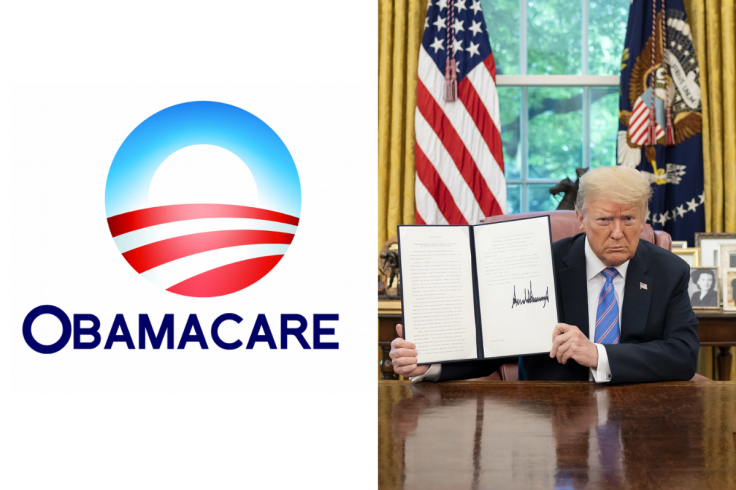Trump Urges Republicans to Scrap Obamacare, Send Healthcare Funds 'Directly to the People'
President calls for major policy shift as government shutdown enters 38th day

President Trump has called on Senate Republicans to dismantle the Affordable Care Act and redirect federal healthcare subsidies directly to American citizens, as the government shutdown stretched into its 38th day. The proposal, shared via Truth Social, marks a renewed push to eliminate Obamacare and reshape federal healthcare spending amid escalating political tensions.
Trump's Proposal: Cut Insurers, Fund Citizens
In his post, Trump criticised the current system of subsidising insurance companies under Obamacare, describing them as 'money sucking' entities. He urged lawmakers to reroute 'hundreds of billions of dollars' directly to the public, allowing individuals to purchase their own healthcare and retain surplus funds.
'Take from the BIG, BAD Insurance Companies, give it to the people, and terminate, per Dollar spent, the worst Healthcare anywhere in the World, ObamaCare,' Trump wrote.
The president's remarks came as the Senate convened for a rare Saturday session following the collapse of a deal that would have temporarily reopened three federal agencies.
Shutdown Stalemate and Healthcare Subsidies
Healthcare subsidies have emerged as a key sticking point in negotiations. Senate Democrats have refused to support a House-passed bill that excludes provisions preventing subsidy increases set to take effect in the new year. On Friday, 7 November, Senate Minority Leader Chuck Schumer proposed a temporary reopening of the government alongside a one-year extension of existing healthcare subsidies. Senate Republicans rejected the offer, stating they would only negotiate on subsidies after the government resumes full operations.
The impasse has left critical services in limbo, with air traffic control disruptions causing widespread flight cancellations and growing public frustration.
Filibuster Frustration
Trump also reignited calls to eliminate the Senate filibuster, a procedural rule requiring a 60-vote supermajority to pass most legislation. 'Terminate the Filibuster!' he declared, suggesting the rule was obstructing efforts to reopen the government and implement his healthcare proposal.
However, the idea faces resistance from within the Republican caucus. Some senators fear that removing the filibuster could backfire if Democrats regain control of the chamber, enabling them to pass sweeping legislation without bipartisan support.
Broader Impacts of the Shutdown
The ongoing shutdown has become the longest in U.S. history, with ripple effects across multiple sectors. The administration's plan to partially fund Supplemental Nutrition Assistance Program (SNAP) benefits remains entangled in legal challenges. A Supreme Court administrative order issued by Justice Ketanji Brown Jackson has temporarily paused benefit distribution, adding further uncertainty for low-income households.
Meanwhile, federal employees continue to work without pay, and public services face mounting strain. The political deadlock has prompted renewed scrutiny of budgetary priorities and legislative gridlock in Washington.
What Comes Next
Trump's proposal to dismantle Obamacare and redirect funds directly to citizens adds a new layer of complexity to the shutdown negotiations. While the idea aligns with longstanding conservative critiques of the Affordable Care Act, its timing and delivery—amid a historic budget standoff—raise questions about feasibility and political strategy.
As Senate negotiations continue, the fate of federal healthcare subsidies and broader government funding remains uncertain. Whether Trump's call to action galvanises Republican lawmakers or deepens partisan divides will likely shape the next phase of the shutdown saga.
© Copyright IBTimes 2025. All rights reserved.


















